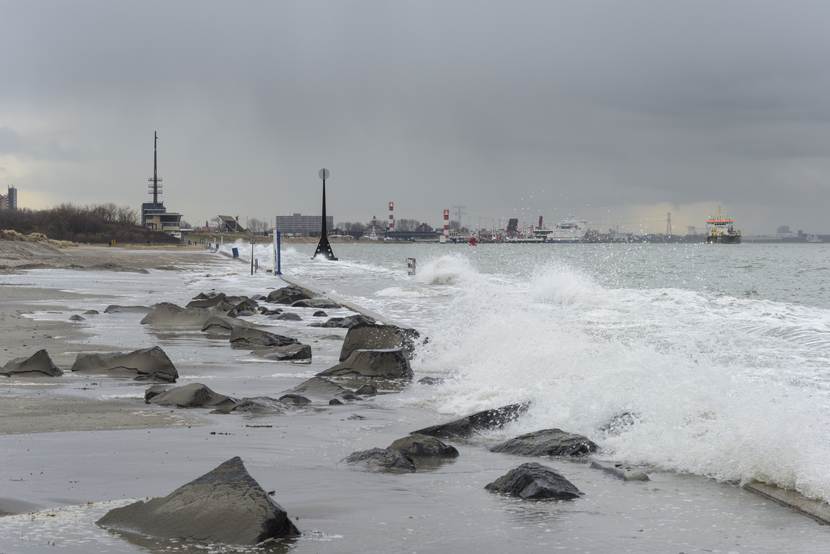Delta Programme 2019, measures to adapt the Netherlands to climate change in time
These past few months, the Netherlands was faced with an unusually long period of drought, which impacted nature, agriculture, shipping, and the economy. In spring, large sections of the country were affected by torrential rain, causing waterlogging at multiple locations. In January, some severe storms disrupted our country, prompting the – first ever – closure of all five storm surge barriers. Weather extremes may have a major impact on our low-lying country. At the same time, new developments such as the rising sea level and soil subsidence may add to the Delta Programme taskings. In order to keep our delta safe and liveable, we must continue to work energetically on the Delta Programme, while concurrently responding adaptively to these new developments. Compliance with the Paris climate agreements is vitally important in this regard.
The Delta Programme 2019 (PDF), prepared by the Delta Programme Commissioner, which sets out concrete measures in the fields of flood risk management, water availability, and spatial adaptation, was presented to the House of Representatives by the Minister of Infrastructure and Water Management, on behalf of the Cabinet.

Progress in the Delta Programme
The Delta Programme is well on schedule. The district water boards and Rijkswaterstaat are keeping up the pace with respect to dyke improvement projects. Furthermore, all across the Netherlands measures are being developed to secure the availability of water during periods of drought. The Minister of Infrastructure and Water Management is setting aside 150 million euros for freshwater supply measures to be implemented with effect from 2022. Two key freshwater supply measures have made significant progress this year. In June, the Minister signed a new Ordnance Decree for the IJsselmeer region, which will make more fresh water available in times of drought. From 24 July onward, the expansion of the so-called Central Netherlands Climate-proof Water Supply system has already provided the central part of the Netherlands with an additional supply of fresh water to combat salinisation and prevent dehydration of peat dykes.
The goal of all the municipalities having conducted a full stress test in the purview of spatial adaptation still requires significant effort. In the purview of setting up an Integrated River Management Programme, the Minister of Infrastructure and Water Management is developing, in collaboration with the Delta Programme partners, an evaluation framework for the choices to be made regarding integrated measures in the areas around the major rivers. She is setting aside a sum of 375 million euros in the Delta Fund for these measures. This investment is needed in order to continue to be able to address the flood protection goals in combination with other national taskings such as shipping and area development.
Potential impact of accelerated rise in sea level
This year’s Delta Programme encompasses an appendix relating to the signs of a potential acceleration in sea level rise and its impact on the work we are doing under the Delta Programme. This initial exploration warrants the conclusion that the set of measures currently envisaged in the Delta Programme will provide a sound basis to keep our delta liveable and habitable until at least 2050. However, research efforts need to be intensified with a focus on the relation between global warming, the melting of the Antarctic ice sheets, the rise in sea level, and the potential consequences for the Netherlands. In addition, we need more fundamental knowledge on the concrete impact of such an acceleration in terms of coastal sediment management, pressure on the flood defence systems, and salinisation of groundwater and surface water. Such knowledge is essential to gain a more concrete picture of the nature, scope, and pace of the changes in the water taskings and to reduce the current major uncertainties.
The exploration also shows that, if we manage to reduce global warming to a maximum of 2 degrees, as set out in the Paris Agreement, the sea level along the Dutch coast may rise by a maximum of 1 to 2 metres by 2100. In that case, the flood risk management and freshwater supply taskings will be bigger than has been assumed up to now in the Delta Programme yet manageable following some policy adjustments. In the event of a more extreme rise in sea level, which may occur if the Paris Agreement goals are not attained, more fundamental choices regarding the protection and design of our delta would seem inevitable over the course of this century. This illustrates the vital importance of compliance with the Paris climate agreements.
Soil subsidence
Soil subsidence is a factor to be reckoned with in the Delta Programme. Some low-lying parts of the Netherlands are experiencing an annual local subsidence of up to 2 cm. This is mainly caused by the combination of peat degradation, increasing loads on soft soils, and (increasingly) lower groundwater levels. Delta Programme Commissioner Wim Kuijken has advised the Cabinet to set up a national soil subsidence programme to ensure a programmed and coherent approach among the governments in addressing this issue in both urban and rural areas. The combat of soil subsidence will reduce the long-term Delta Programme tasking and can contribute to reducing CO2 emissions.
Delta Programme Commissioner’s retirement
The Delta Programme 2019 is the last Delta Programme to be prepared by Delta Programme Commissioner Wim Kuijken. By the end of November this year, he will resign as the (first) Delta Programme Commissioner, after serving more than eight and a half years, as he will then reach retirement age. In accordance with the Delta Act, the Minister of Infrastructure and Water Management will appoint a successor.